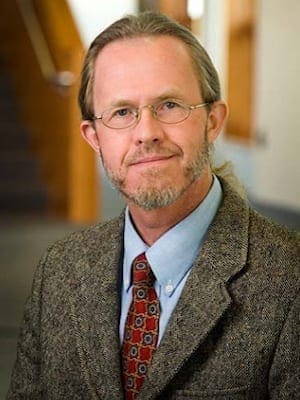Ministers live in ethical tension regarding privileged information. Ministry presents one with private dimensions, even secrets, of other people’s lives. Clergy caregivers are entrusted with such knowledge to use it with care.
Ministers bear responsibility for keeping confidences, thus protecting privacy. Yet privileged information oftentimes must be shared in order to provide care. Keeping secrets in the guise of confidentiality may actually harm people rather than help. So there is ethical tension on the boundaries between keeping confidentiality and breaching it, or between keeping secrets and breaking silence.
The latter distinction takes on importance with enhanced awareness of how much sexual abuse has been shrouded in secrecy, enabling abusers to cow victims into silence with warnings of “Don’t tell!” Caring ministry for abuse victims is, in part, one of enabling secrets to be told, of breaking silence. Primarily this is a matter of enabling the silenced to speak and be heard. Sometimes, especially in the case of children and the mentally incapacitated, it means that the minister speaks on behalf of victims and tells secrets to others who might help.
Caring in crisis situations also requires the crossing of informational boundaries so that emergency services may be accessed. Suicidal or homicidal persons must have privacy rights compromised by one who would emergently care for them or those endangered by such crisis.
What is meant then by “confidentiality”?
Clearly it does not indicate professional secret-keeping. “Confidentiality” comes from two Latin words, con and fidere, which mean “with trust.” What we expect of ministers and others who gain access to privileged personal information is not that they will never divulge it, but that they can be trusted with it.
If confidentiality is misunderstood as “keeping secrets,” trustworthy ministers might be accused falsely after sharing information appropriately. In fact, many states now list clergy among those professionals who are “mandated reporters” of suspected child abuse or neglect. Yet when incriminating confessions or a victim’s secrets are told to the proper governmental authorities, mandated clergy reporters can find themselves controversially and ethically in tense situations on the fuzzy boundaries of confidentiality.
Sometimes though, even usually trustworthy caregivers have acted inappropriately, harming people in their care by divulging privileged information without either mandate or permission, and/or with those who had no need nor right to know. As a result of such violations of trust, because of the high societal value placed on personal privacy, and on account of our having become a litigious society also, other legal strictures increasingly are being placed on all caregivers in the public and private sectors. These new mandates both regulate and restrict access to and use of privileged information. This is the flip side of mandated reporting.
Where ministers are running into privacy mandates most often is in health care institutions. In response to the recent implementation of HIPAA (Health Insurance Portability and Accountability Act, 1996) and the watchdog role of JCAHO (Joint Commission and Accreditation of Health Organizations), hospitals have begun removing the usual ministerial aids to finding parishioner patients: patient registries for clergy, patient information in response to telephone inquiries, patient names and room numbers listed visibly at the nurses’ station, and even name plates on patients’ room doors. Such efforts to respect privacy, exerted on the part of one group of caregivers, have the result also of frustrating the caregiving efforts of others within the community.
A HIPAA/JCAHO inspired proposal of the Salina Regional Health Center in Kansas went so far as to exact signed contracts from clergy and other designated church visitors of the hospitalized. Only registered and “trained” clergy and church visitors would be allowed access to patients, and then only to patients registered as their parishioners.
The Salina proposal also mandates that pastors “will not share confidential information about a parishioner’s medical condition or hospital experience from the pulpit or in print either by letter or church newsletter unless given permission by their parishioner.” Indeed, harms are done by well-intentioned ministers who would share publicly as a “prayer request” a patient’s genetic test results or private HIV information.
“Prayer chains” can become conduits of gossip. Yet from a clergy perspective, the hospital’s edict appears to be intrusion by the medical community on prerogatives and practices of the church. From the perspective of medical professionals, however, it merely states the obvious relative to patients’ privacy rights and professional confidentiality rules required of all caregivers.
Note the opposite operating presumptions here. The hospital presumes, in writing if not always in practice, that individuals prefer privacy of their personal information. This preference is overruled only by written consent. Churches begin with the presumption that parishioners prefer that their medical hardship and hospitalization be known to the community, via its ministerial leaders, for purposes of prayer support. It is presumed that the “church family” needs to know, not because they are nosey but because they care. This communitarian preference is overruled only by an expressed request for privacy.
Within some fuzzy boundaries, at least this much seems clear: There is a need for professional confidentiality codes and even legal mandates regarding release of patient-parishioner information, especially given societal norms and some caregivers’ careless violations of them.
Yet parishioners’ personal information is not to be regarded by ministers as professional secrets, and is not so much private as it is privileged. What one is privileged to know of other persons’ lives is held, and perhaps carefully shared, con fidere, with trust.
Tarris Rosell is associate professor of pastoral care and practice of ministry at Central Baptist Theological Seminary.

